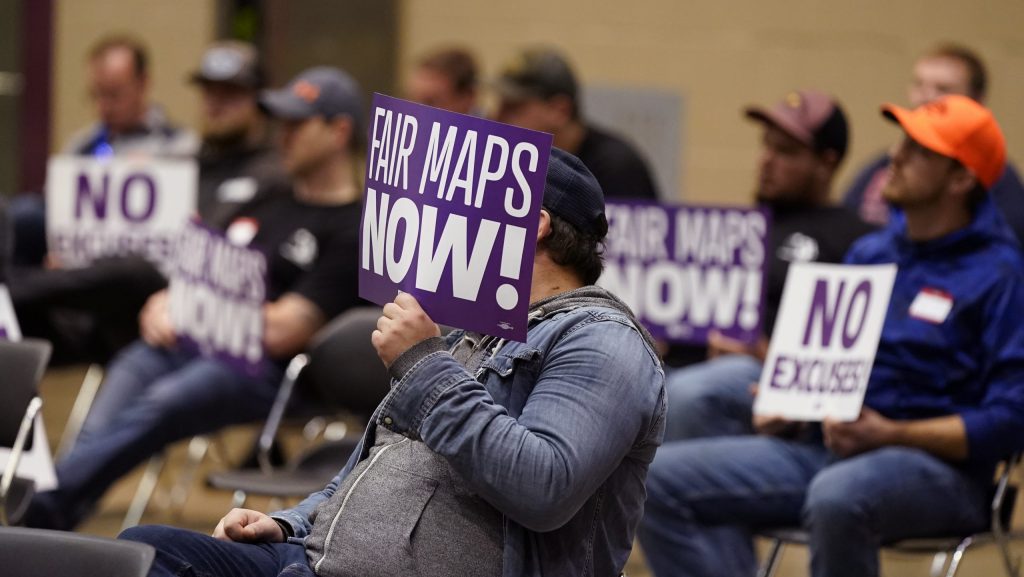Did Michigan’s Independent Citizens Redistricting Commission give power back to voters?
While there is room for improvement, the citizen drawn maps better reflected the will of the people according to two MICRC commissioners.

Protesters attend a meeting of the Michigan Independent Citizens Redistricting Commission on Oct. 21, 2021, in Lansing, Mich.
For the past four decades, Republicans dominated control of Michigan’s legislature with the help of gerrymandering. Republicans retained control of the state House and Senate, despite a majority of Michigan voters casting their ballots for Democrats. For example, in 2014 Michigan voters cast 30,000 more ballots for Democrats in the state House. Still, Republicans held a 63-47 advantage after all the votes were counted.
In 2018, voters responded by electing to have an independent citizen’s commission re-draw district maps. This November was the first year using maps drawn by citizens, with Democrats winning slim majorities in both houses.
“On one hand, the maps performed as we expected them to, which just gets into validating how powerfully the drawing of maps can influence an election,” Commissioner Rebecca Szetela, Michigan Independent Citizens Redistricting Commission
Listen: How the newly drawn maps performed in MICRC’s first election
Guests
Rebecca Szetela is a an independent from Canton on the Michigan Independent Citizens Redistricting Commission. She says while the maps better reflected the will of voters, she still has concerns about minority representation and partisan lien.
“So in this case, for the most part, the maps reflected that almost 54% of voters who voted Democratic in this election, and that was good to see that we had that representation of how the voters were voting being aligned with what the results were,” explains Szetela. “However, you know, there are concerns that I had about these maps, specifically about the ability of Black candidates to be elected and for Black voters to elect their candidates of choice. And then I also had some concerns about the Republican lien on the house map. And I think, unfortunately, these election results have seemed to validate those concerns.”
Anthony Eid is an independent from Detroit on the Michigan Independent Citizens Redistricting Commission. He says the commission’s maps, though not perfect, performed significantly better than years past.
“We were in a situation previously, where due to gerrymandering, there was often the case where the folks who got the most votes didn’t hold the most legislative power in our state,” says Eid. “And I think what we can say now, is that at least the will of the voters is being respected.”
Trusted, accurate, up-to-date.
WDET strives to make our journalism accessible to everyone. As a public media institution, we maintain our journalistic integrity through independent support from readers like you. If you value WDET as your source of news, music and conversation, please make a gift today.
